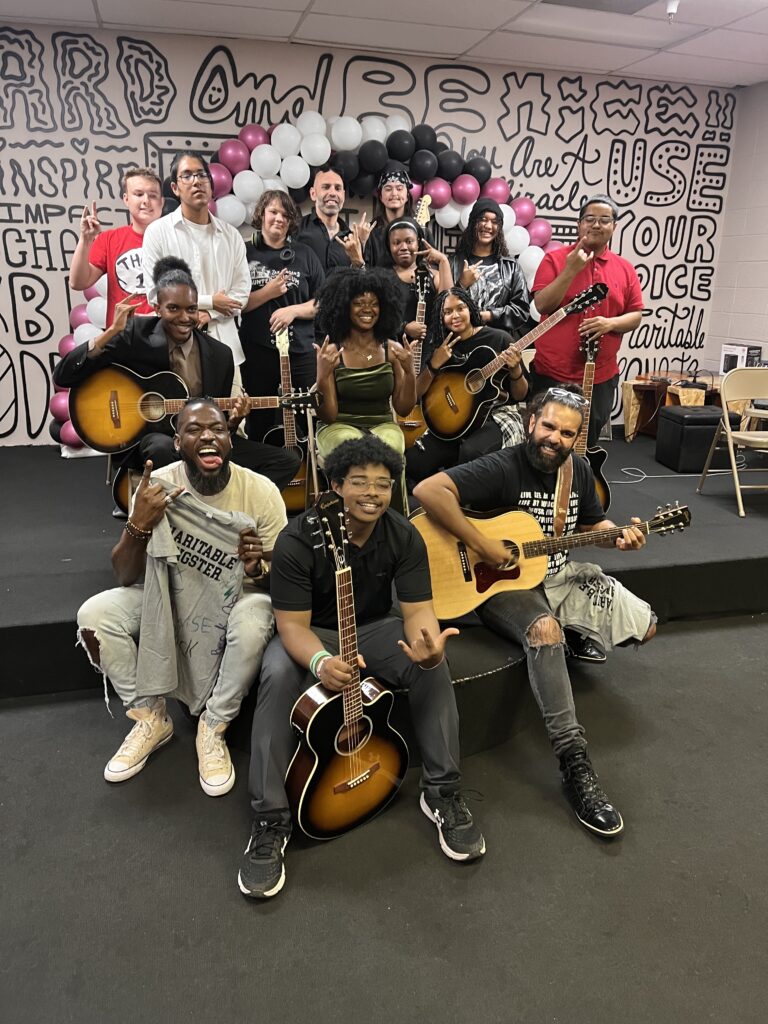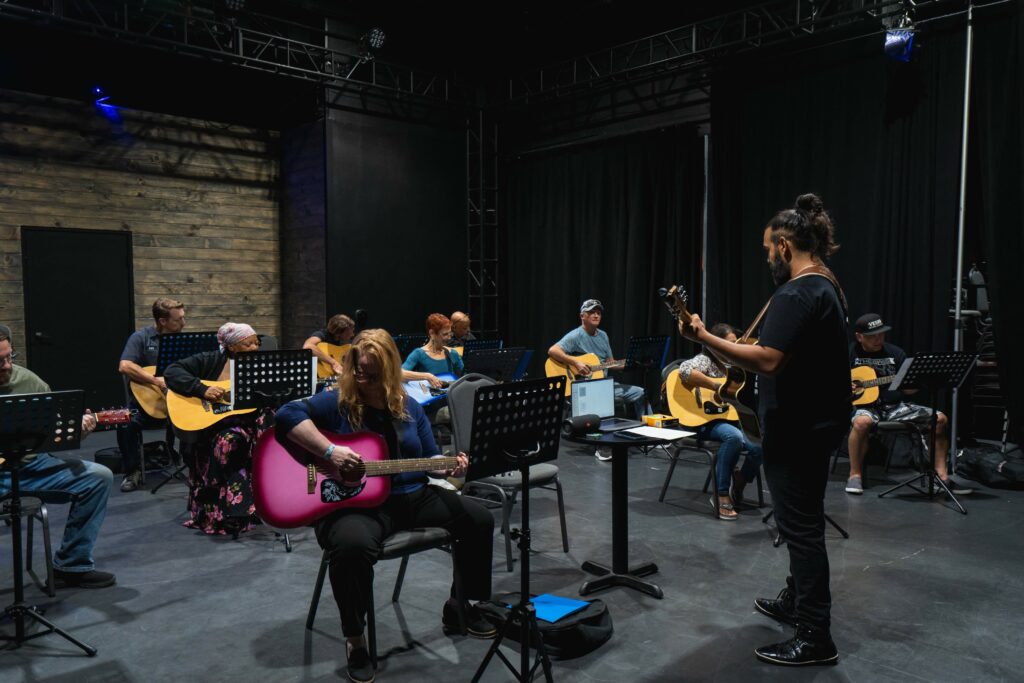When it comes to mastering music, many students wonder whether learning alone or in a group is more effective. While one-on-one lessons have their place, collaborative, group-based learning uniquely accelerates musical development by fostering social connection, cognitive growth, motivation, and emotional well-being.
1. Social Connection & Peer Learning
Learning music in a group naturally builds camaraderie and teamwork. Students collaborate, listen to one another, synchronize their playing, and work toward shared goals. This communal experience supports ensemble playing and strengthens communication.

Here at Life by Music, we’ve seen this firsthand in our Shoulder to Shoulder Music program, where veterans come together to heal and connect through guitar and songwriting. What begins as a simple chord often grows into shared trust, friendship, and mutual support.
2. Increased Motivation & Accountability
Group environments boost motivation. Observing peers practice and improve creates gentle peer pressure to keep up, while a sense of collective responsibility encourages consistency.
3. Skill Development Through Observation
Watching classmates in action offers informal but powerful learning opportunities. Students pick up technique, posture, interpretative choices, and stage presence.
4. Enhanced Listening & Ensemble Skills
Playing collectively sharpens listening skills and musical sensitivity. In group settings, students learn to stay in rhythm, match harmony, and weave their part into the entire sound which are essential components of musicianship.
5. Boosted Confidence & Stage Presence
Group lessons provide frequent low-pressure performance opportunities. Regular participation and mutual support help reduce stage fright and build confidence, especially useful for young or shy learners.
In our Rockin Guitar program for teens, we have found that learning how to play the guitar in a group allows teens to cheer each other on. The supportive and safe environment provided by our “jam” sessions help to boost self-esteem.
6. Creativity & Broader Musical Exposure
Groups often involve ensemble playing, improvisation, and varied roles that spark creativity and expose students to diverse instruments and genres.
7. Cognitive & Emotional Benefits
Beyond skill-building, group music making positively affects the brain and emotional resilience. It releases dopamine and oxytocin, reducing stress and building emotional strength while fostering neural processing and auditory memory.
Further, studies link musical engagement, especially in social contexts, improve cognitive health, executive function, and memory in older adults.
8. Active Engagement Fuels Learning
Active participation is what truly enhances learning. Research shows that students who engage fully (e.g., playing instruments, attending consistently) gain more in neural processing and academic performance.
9. Community Belonging & Cooperative Learning Effects
Collaborative learning supports not just music skills, but a sense of belonging and mutual support. Research in learning communities shows that interdependent group learning improves achievement, satisfaction, self-esteem, and retention.

Conclusion
Group music learning offers a holistic, enriching approach that outpaces solitary practice in many dimensions. Through social connection, mutual inspiration, performance readiness, creative collaboration, and neurological benefits, group environments accelerate musical growth and make the journey more joyful and sustainable. For many learners, the ideal path lies in combining group experiences with private lessons to maximize both social and individualized benefits.

